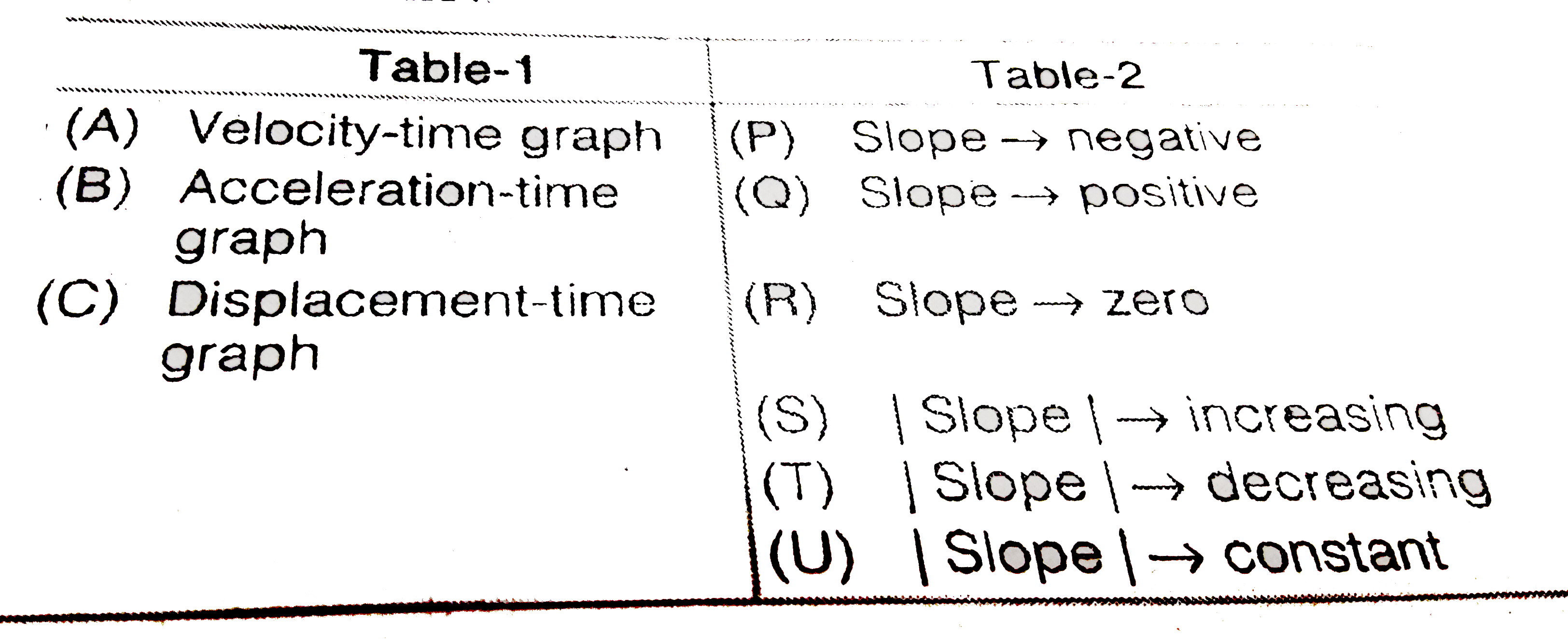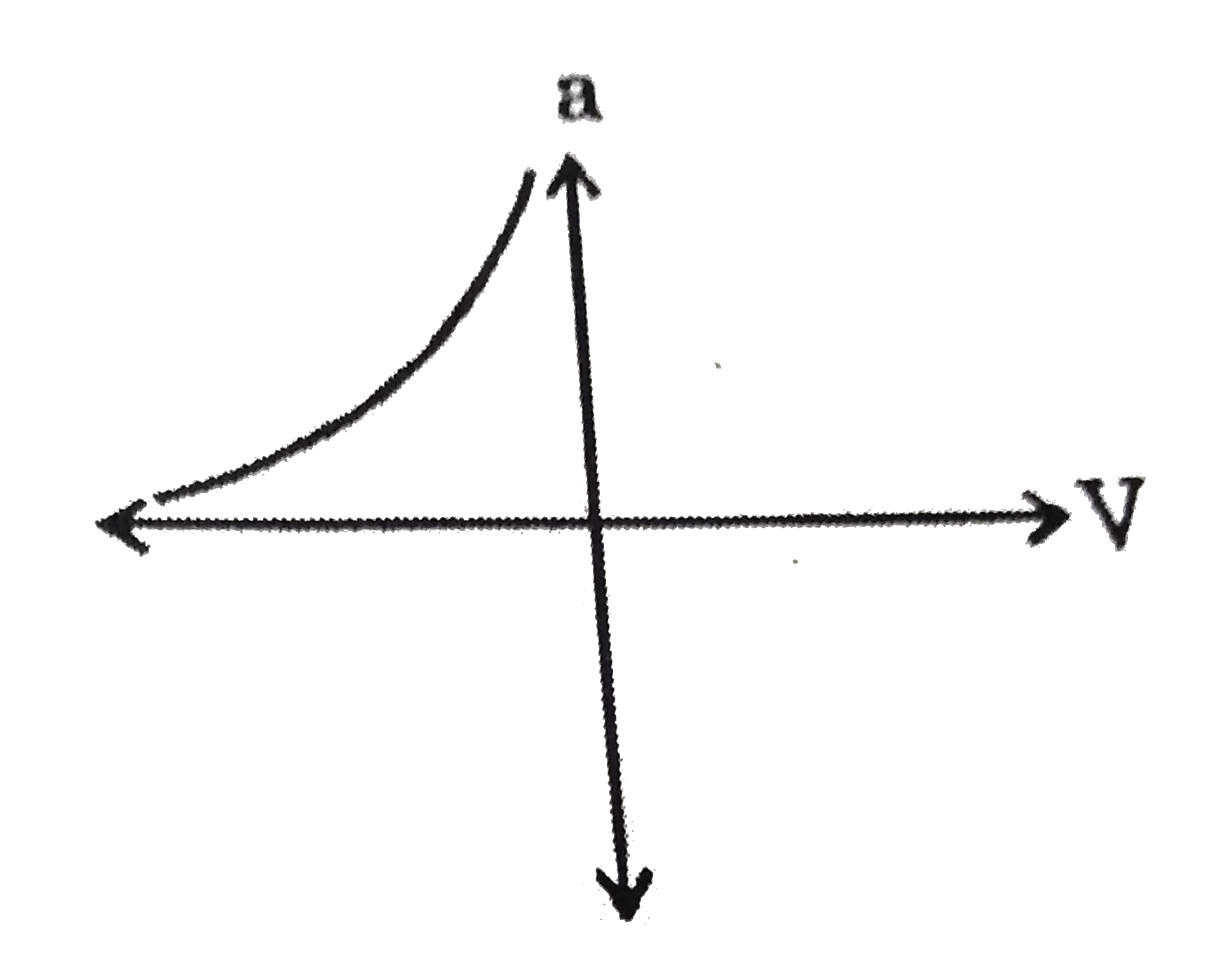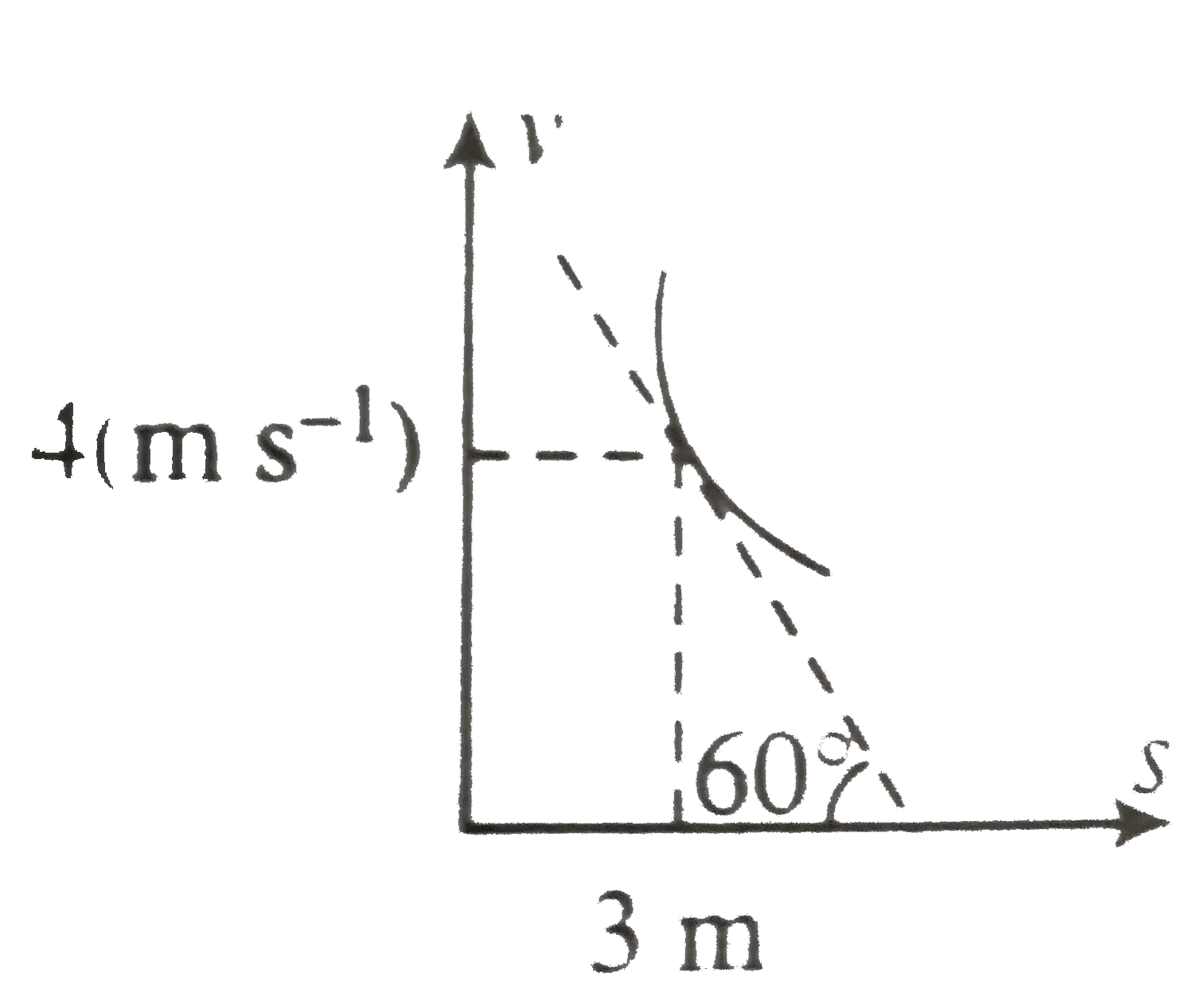A particle moves along a straight line path. After some time it comes to rest. The motion is with constant acceleration whose direction with respect to the direction of velocity is :
positive throughout motion
negative throughout motion
first positive then negative
first negative then positive
The correct Answer is:B
Here velocity is decreasing, so acceleration will be opposite to the direction os motion and hence, it will be negative w.r.t. the direction of velocity till it comes to rest.
Topper's Solved these Questions
- GENERAL KINEMATICS AND MOTION IN ONE DIMENSIONBOOK - A2ZCHAPTER - GENERAL KINEMATICS AND MOTION IN ONE DIMENSIONEXERCISE - Motion With Constant Acceleration
30 Videos
- GENERAL KINEMATICS AND MOTION IN ONE DIMENSIONBOOK - A2ZCHAPTER - GENERAL KINEMATICS AND MOTION IN ONE DIMENSIONEXERCISE - Motion Under Gravity
30 Videos
- FLUID MECHANICSBOOK - A2ZCHAPTER - FLUID MECHANICSEXERCISE - Chapter Test
29 Videos
- GRAVITATIONBOOK - A2ZCHAPTER - GRAVITATIONEXERCISE - Chapter Test
29 Videos
Similar Questions
Velocity of a particle is in negative direction with constant acceleration in positive direction. Then match the following:

View SolutionA particle is moving along a straight line.The initial velocity is 10ms and it is , moving with constant retardation of 2ms2 .. The distance travelled by the particle until it comes to rest is
View Solution
Knowledge Check
A particle moving on a straight line ultimately comes to rest ? What is the angle between its initial velocity and acceleration ?
AZeroBπ/4Cπ/2DπA particle is moving with a constant speed along a straight line path. A force is not required to
AIncrease its speedBDecrease the momentumCChange the directionDKeep it moving with uniform velocityA particle is moving with a constant speed along a straight line path. A force is not requied to
Aincreased its speedBDecrease the momentumCchange the directionDkeep it moving with uniform velocity
A car moves in a straight line, the car accelerates from rest with a constant acceleraation α on a straight foad. After gaining a velocity v, the car moves with that velocity for somerime. Then car decelerates with a retardation β, If the total distance covered by the car is equal to s find the total time of its motion.
View SolutionA particle moves in straight line. Acceleration of particle changes with velocity as showns in graph:

View SolutionA particle is moving along a straight line whose velocity - displacement graph is shown in figure. What is the acceleration when displacement is 3 m?

View SolutionA particle starts moving along a line from zero initial velocity and comes to rest after moving distance d. During its motion it had a constant acceleration f over 2/3 of the distance, and covered the rest of the distance with constant retardation. The time taken to cover the distance is
View SolutionA body A starts from rest and moves with a uniform acceleration along a straight line. Another body B has some initial velocity and moves with larger acceleration than that of A. The correct velocity time graphs
View Solution
